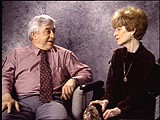You searched for: ust众筹理财项目定制开发【tg���������@ek7676】平台包网搭建unit众筹理财项目定制开发【tg���������@ek7676】平台包网搭建gnogu7gctt
<< Previous | Displaying results 1661-1670 of 1755 for "ust众筹理财项目定制开发【tg���������@ek7676】平台包网搭建unit众筹理财项目定制开发【tg���������@ek7676】平台包网搭建gnogu7gctt" | Next >>
-
Blanka Rothschild describes the role of sharing and friendship in surviving the Lodz ghetto
Oral HistoryBlanka was an only child in a close-knit family in Lodz, Poland. Her father died in 1937. After the German invasion of Poland, Blanka and her mother remained in Lodz with Blanka's grandmother, who was unable to travel. Along with other relatives, they were forced into the Lodz ghetto in 1940. There, Blanka worked in a bakery. She and her mother later worked in a hospital in the Lodz ghetto, where they remained until late 1944 when they were deported to the Ravensbrueck camp in Germany. From Ravensbrueck,…
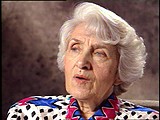
-
Charlene Schiff describes a clandestine school for children in the Horochow ghetto
Oral HistoryBoth of Charlene's parents were local Jewish community leaders, and the family was active in community life. Charlene's father was a professor of philosophy at the State University of Lvov. World War II began with the German invasion of Poland on September 1, 1939. Charlene's town was in the part of eastern Poland occupied by the Soviet Union under the German-Soviet Pact of August 1939. Under the Soviet occupation, the family remained in its home and Charlene's father continued to teach. The Germans…
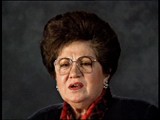
-
Charlene Schiff describes the German invasion of her town, Horochow, in the summer of 1941
Oral HistoryBoth of Charlene's parents were local Jewish community leaders, and the family was active in community life. Charlene's father was a professor of philosophy at the State University of Lvov. World War II began with the German invasion of Poland on September 1, 1939. Charlene's town was in the part of eastern Poland occupied by the Soviet Union under the German-Soviet Pact of August 1939. Under the Soviet occupation, the family remained in its home and Charlene's father continued to teach. The Germans…
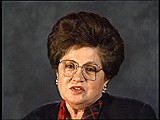
-
Rifka Muscovitz Glatz describes living on a kibbutz and dealing with language barriers
Oral HistoryRifka was raised in a religious family in Debrecen. In the early 1940s, her family moved to Cluj (Kolozsvar) in Northern Transylvania, annexed to Hungary from Romania in 1940. In 1944, she and her family were forced to leave their house in Cluj. They were rounded up by Hungarian troops helping the Nazis and taken to a brick factory where they stayed for a month. In June 1944, Rifka was transported to the Bergen-Belsen concentration camp. Eight months later she was transported to Switzerland. She sailed to…
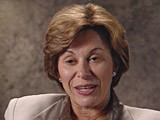
-
Norbert I. Swislocki describes fleeing from Warsaw with his mother
Oral HistoryNorbert was 3 years old when Germany invaded Poland in September 1939. He and his mother were in Warsaw; his father had been drafted into the Polish army and later ended up in Vilna. Norbert and his mother set out to join him and the family was reunited after a few months. After the family had been in Vilna for about a year, Norbert's father was able to obtain visas for Curacao in the Dutch West Indies and visas for transit through Japan. Norbert and his parents left Vilna in January 1941, and arrived in…
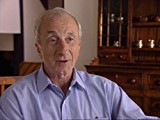
-
Hessy Levinsons Taft describes her family's escape from occupied France to the "zone libre" (free zone) in the south of France
Oral HistoryAs prewar antisemitism intensified, Hessy's family fled from Germany to Paris, France. France fell to the German army in June 1940. Hessy's family was smuggled into the "zone libre" (free zone) in southern France. The family received a US visa in 1941, but was unable to leave before the visa expired and could not obtain an extension. In 1942, the family obtained visas to enter Cuba, where they settled before immigrating to the United States in 1949.
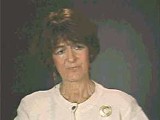
-
Benjamin (Beryl) Ferencz describes collecting evidence of death marches
Oral HistoryBen was born in a small village in the Carpathian Mountains of Transylvania in Romania. When he was an infant, his family moved to the United States. Ben attended Harvard University, where he studied criminal law. Ben graduated from Harvard University Law School in 1943. He joined a US anti-aircraft artillery battalion that was training in preparation for an Allied invasion of western Europe. At the end of World War II in Europe, Ben was transferred to the war crimes investigation branch of the US Army. He…
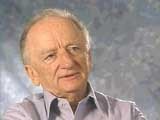
-
Benjamin (Beryl) Ferencz describes collecting evidence against alleged war criminals
Oral HistoryBen was born in a small village in the Carpathian Mountains of Transylvania in Romania. When he was an infant, his family moved to the United States. Ben attended Harvard University, where he studied criminal law. Ben graduated from Harvard University Law School in 1943. He joined a US anti-aircraft artillery battalion that was training in preparation for an Allied invasion of western Europe. At the end of World War II in Europe, Ben was transferred to the war crimes investigation branch of the US Army. He…
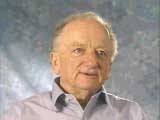
-
Thomas Buergenthal describes a forced-labor camp in Kielce
Oral HistoryThomas's family moved to Zilina in 1938. As the Slovak Hlinka Guard increased its harassment of Jews, the family decided to leave. Thomas and his family ultimately entered Poland, but the German invasion in September 1939 prevented them from leaving for Great Britain. The family ended up in Kielce, where a ghetto was established in April 1941. When the Kielce ghetto was liquidated in August 1942, Thomas and his family avoided the deportations to Treblinka that occurred in the same month. They were sent…
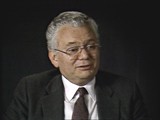
-
Irene Hizme and Rene Slotkin describe deportation to Auschwitz
Oral HistoryIrene and Rene were born Renate and Rene Guttmann. The family moved to Prague shortly after the twins' birth, where they were living when the Germans occupied Bohemia and Moravia in March 1939. A few months later, uniformed Germans arrested their father. Decades later, Irene and Rene learned that he was killed at the Auschwitz camp in December 1941. Irene, Rene, and their mother were deported to the Theresienstadt ghetto, and later to the Auschwitz camp. At Auschwitz, the twins were separated and subjected…
